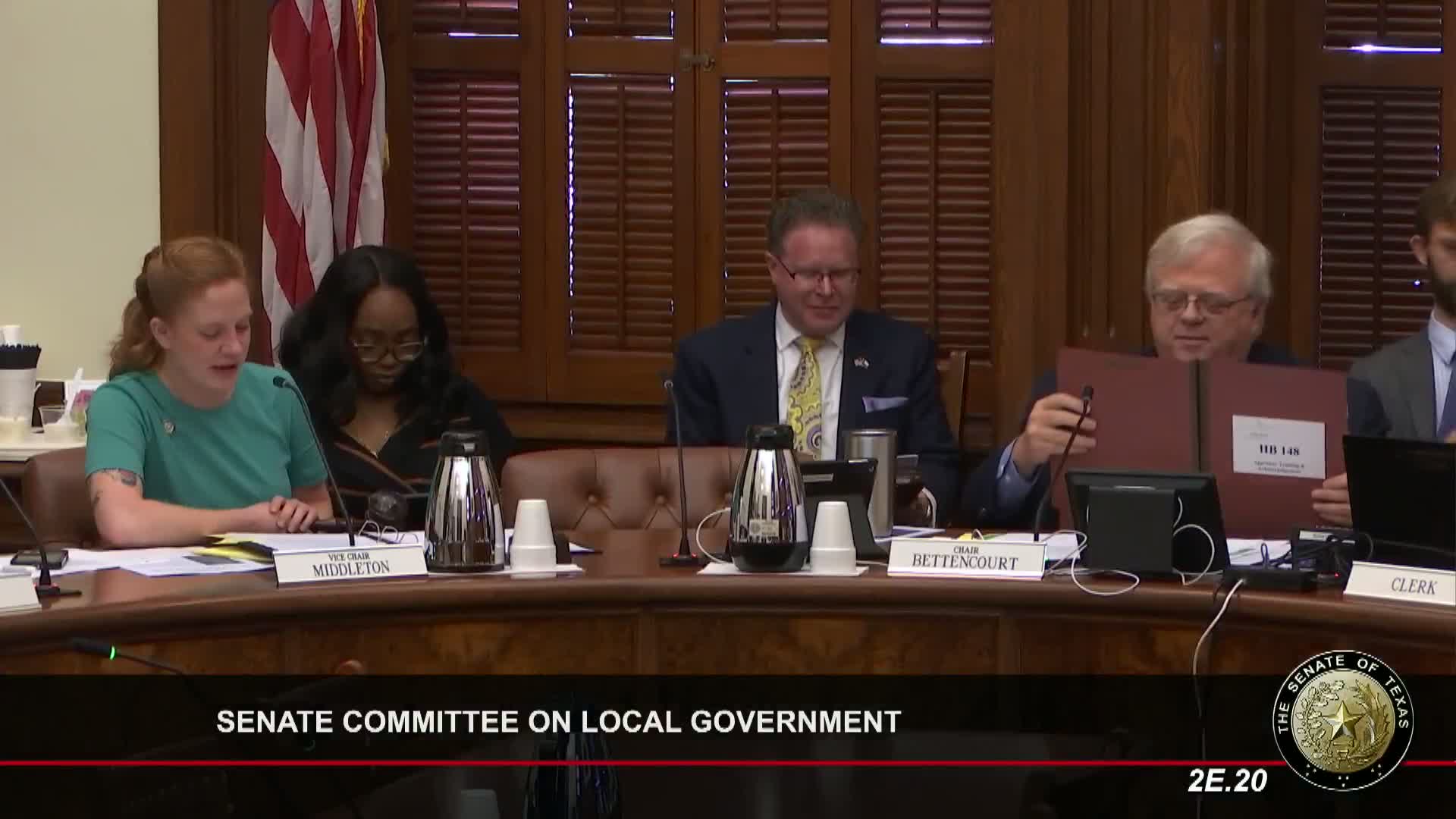Article not found
This article is no longer available. But don't worry—we've gathered other articles that discuss the same topic.
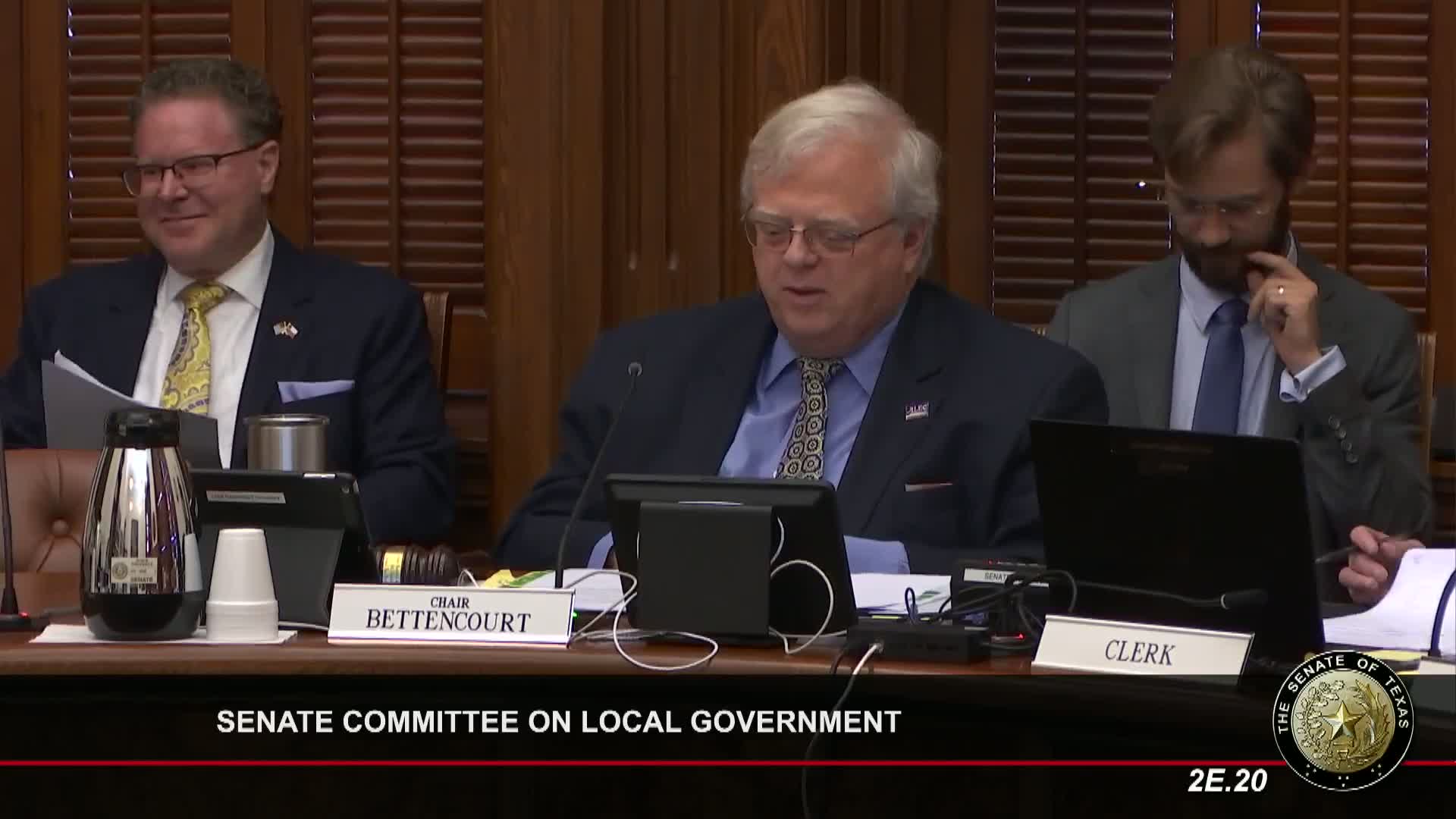
Committee backs study panel for firefighter suicide prevention and peer support
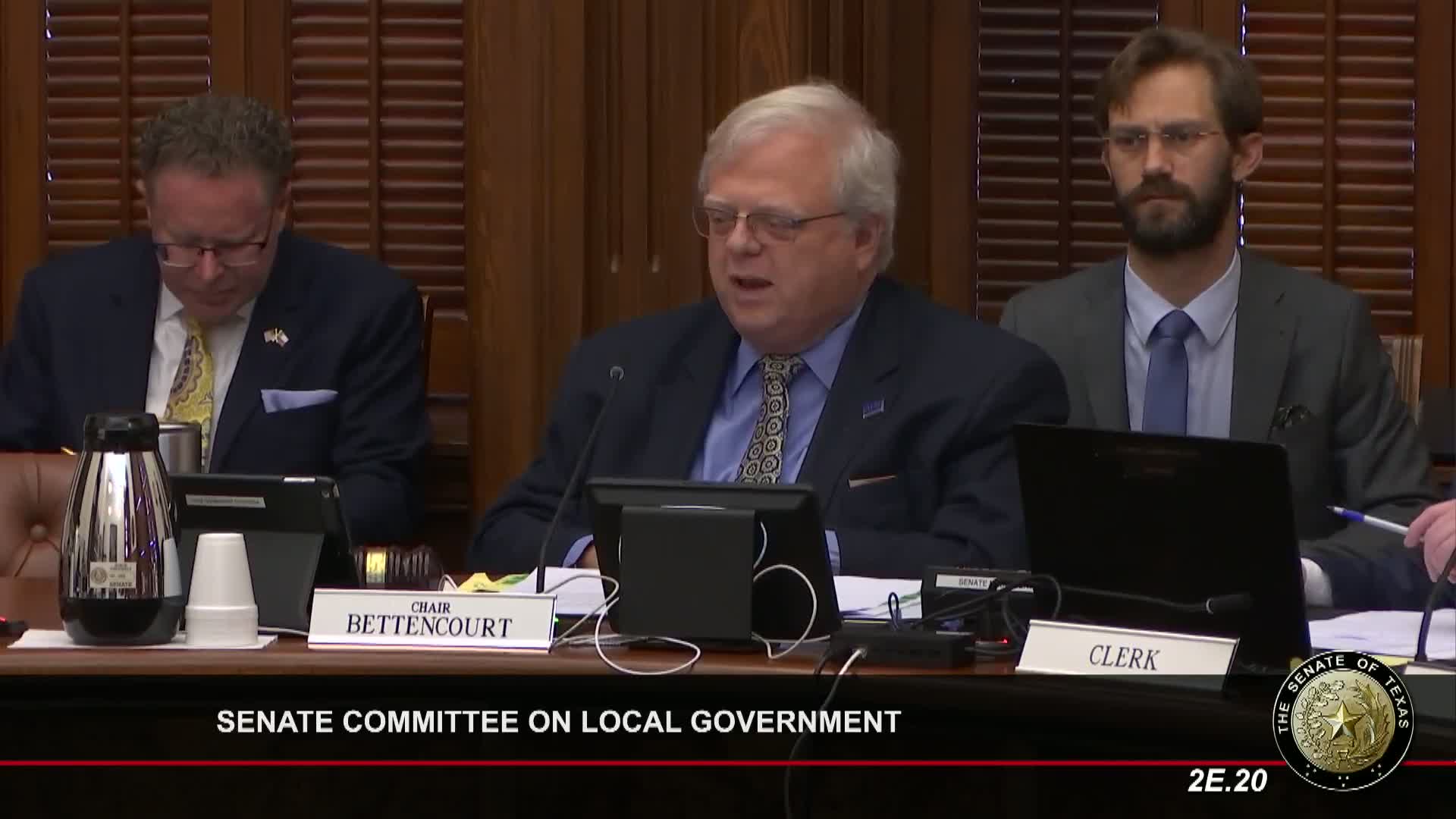
Bill would require searchable state database of local government bond obligations, proponents say
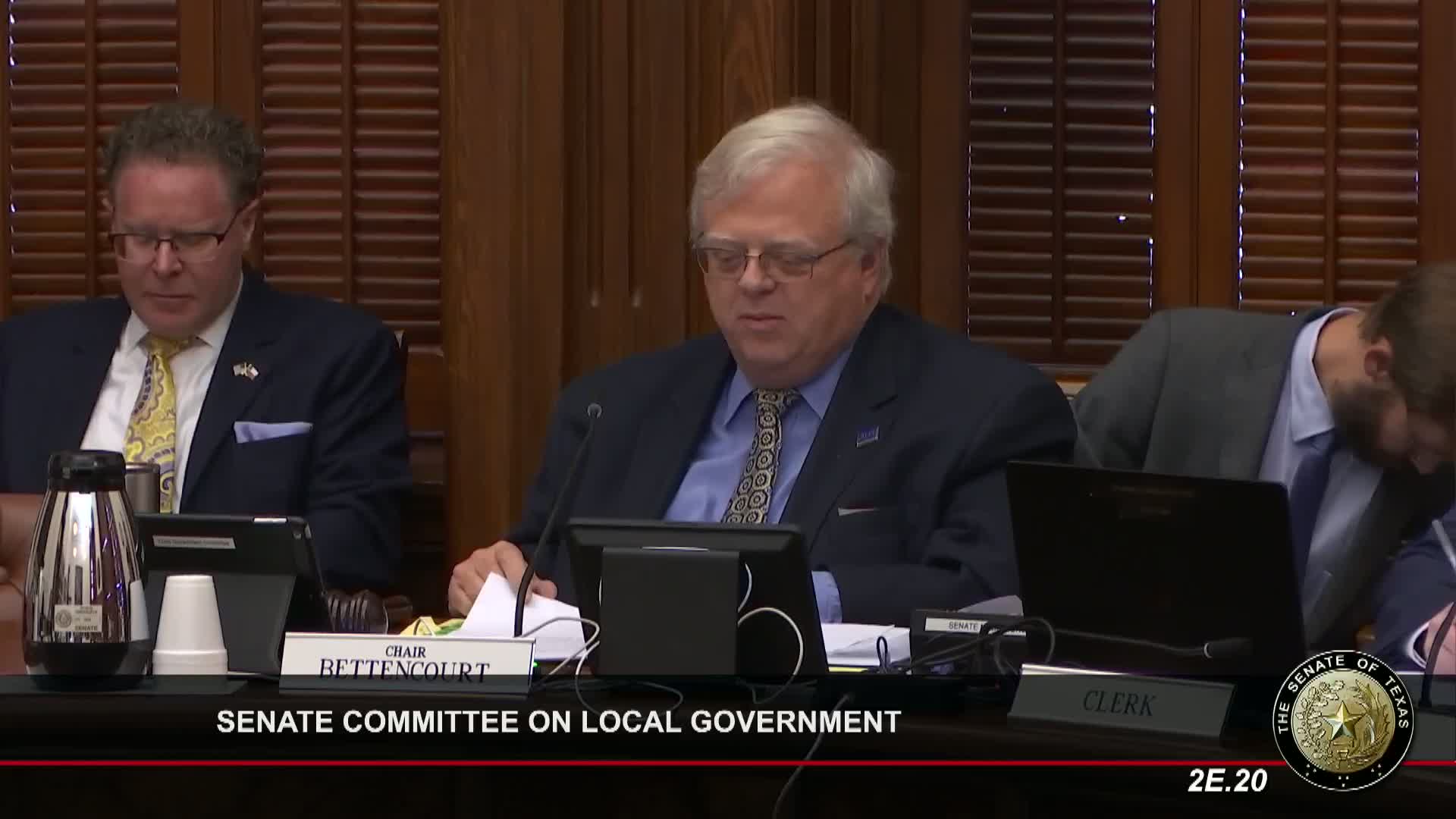
Committee hears bill giving counties option to create family shared leave pools for employees
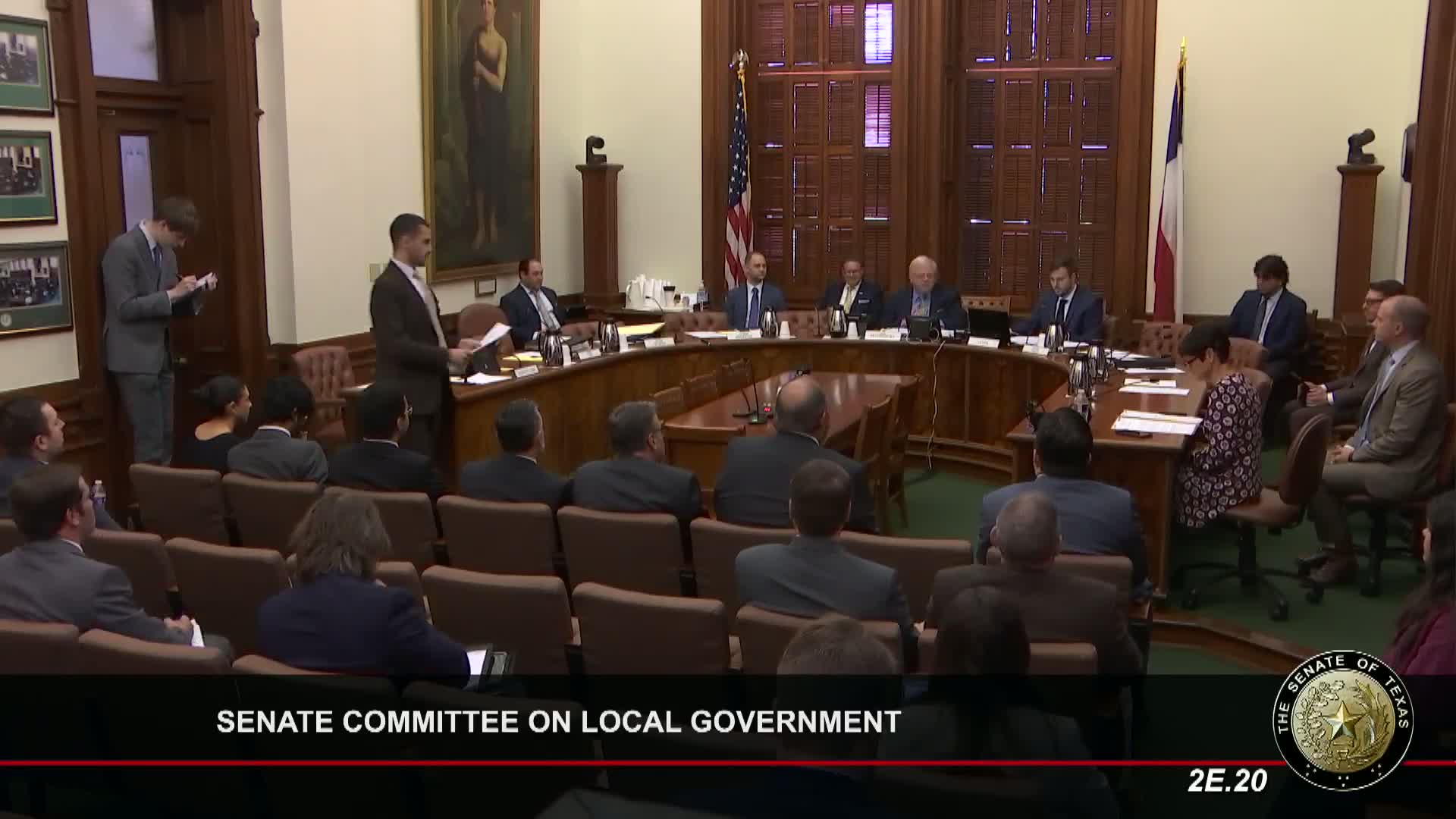
Senate committee hears bill to clarify remedies for property owners challenging municipal zoning
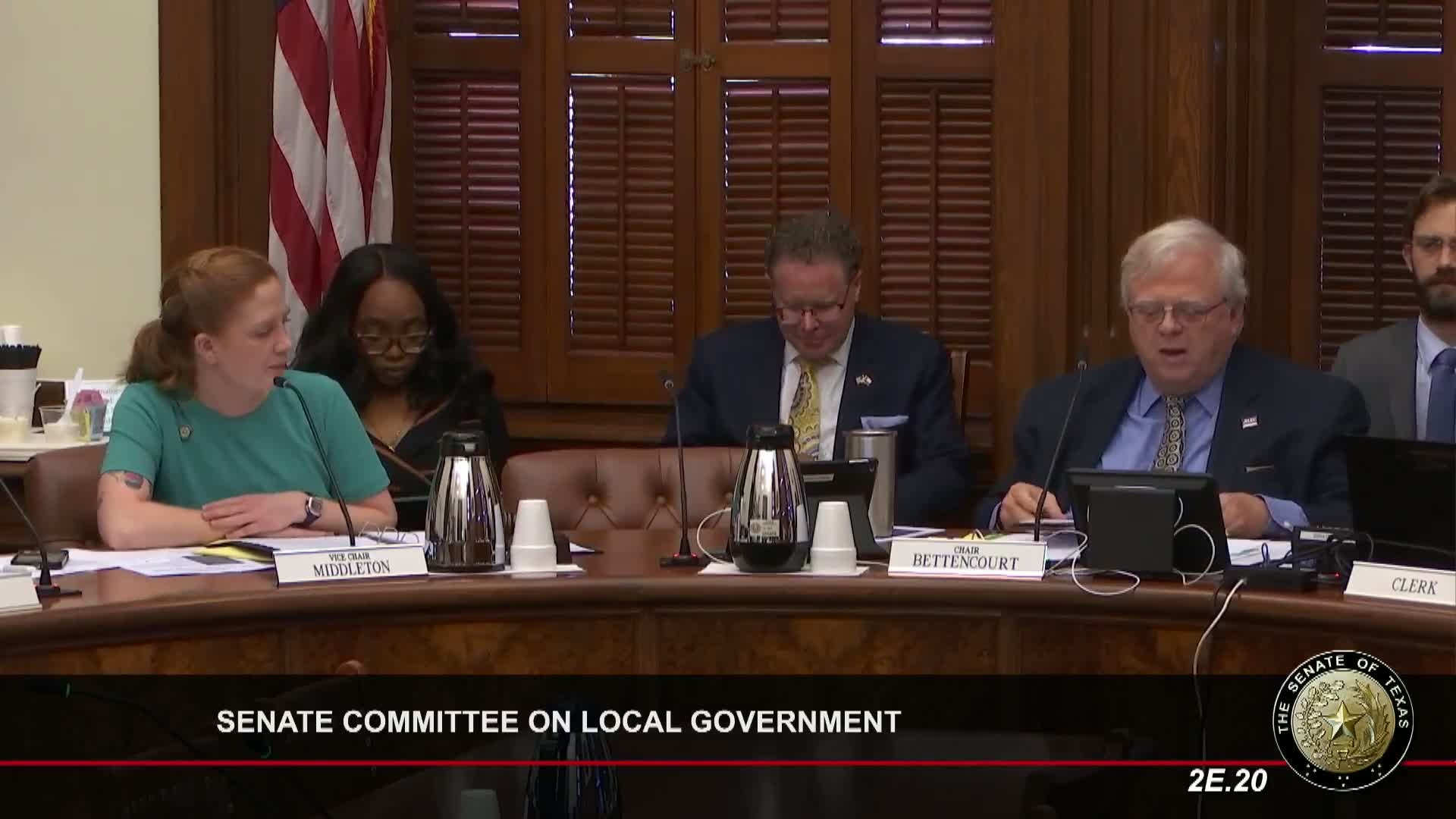
Senate panel reviews bill to limit severance pay for public executives
